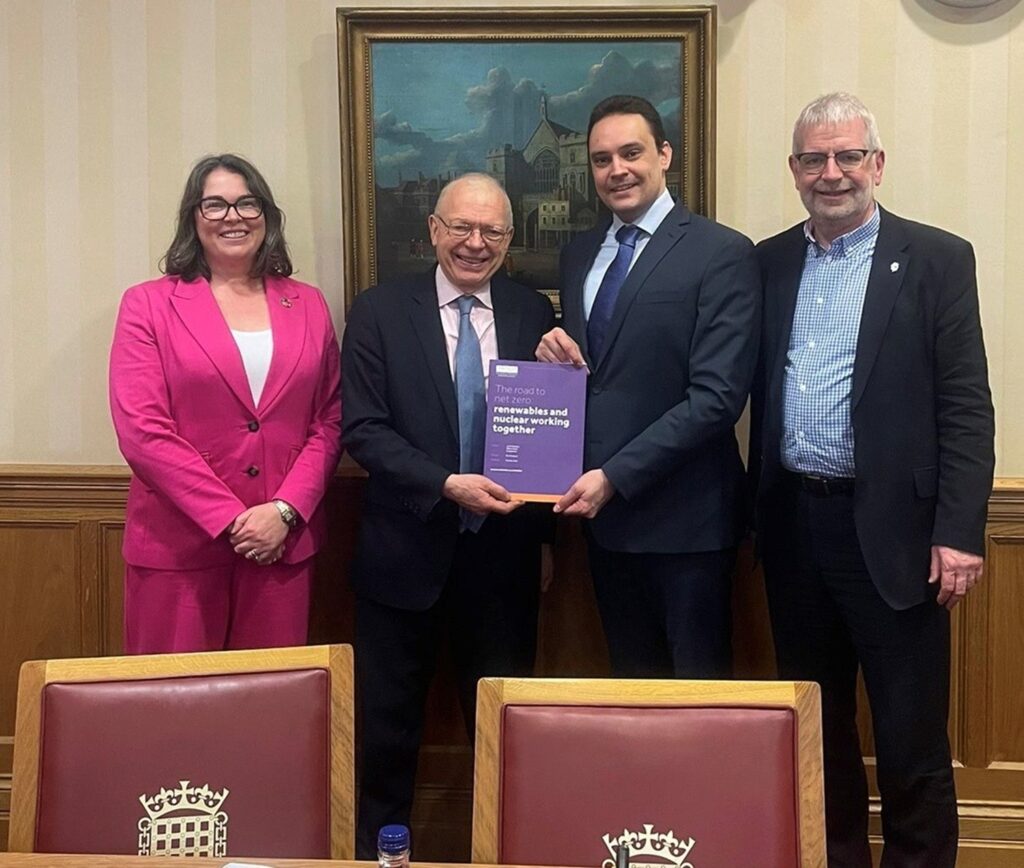A leading academic has highlighted the potential for advanced nuclear technology to support the UK’s transition to low-carbon energy, particularly in hydrogen production and renewable energy integration.
Dr William Bodel, from the Dalton Nuclear Institute at the University of Manchester, outlined his findings in an article published by Policy@Manchester to coincide with Nuclear Week in Parliament.
As part of a university delegation attending the Westminster event, Dr Bodel argued that the UK’s only scalable low-carbon energy sources are renewables—such as wind and solar—and nuclear power. However, he stressed that the intermittency of renewable sources requires a flexible alternative to ensure a stable energy supply.
“For the periods where the sun doesn’t shine much and the wind doesn’t blow much, a flexible alternative technology is needed to fill in these gaps and meet the nation’s power demand,” he said.
Making nuclear power more adaptable
Dr Bodel noted that while nuclear power stations provide consistent energy, they are designed to operate at full capacity continuously. This economic model, he said, makes it difficult for nuclear plants to scale production up or down in response to fluctuations in renewable output.
However, he suggested that coupling nuclear power with hydrogen production could offer a solution. “Introducing hydrogen production—alongside electricity generation—creates a way to make the output flexible, diverting nuclear output towards electricity or hydrogen production as required,” he explained.
Such a system would allow nuclear reactors to run at full capacity, with energy directed either into the national grid or hydrogen production depending on demand. “Even rapid changes in renewable output can be accommodated by turning the hydrogen production ‘dial’ up and down,” Dr Bodel added.
Hydrogen as the missing link
The article highlights high-temperature electrolysis as a particularly efficient method for producing hydrogen—provided sufficient heat is available. Dr Bodel argued that advanced nuclear reactors, which generate both electricity and high-temperature heat, are well suited to support this process.
“This makes it an ideal technology to partner advanced reactors,” he said, noting that such a system could provide energy flexibility while maximising the potential of both nuclear and renewable sources.
Research at the Dalton Nuclear Institute suggests that this integrated approach could significantly cut emissions by reducing reliance on backup gas-fired power stations. It could also reduce costs by minimising the need for expensive energy storage solutions.
Call for government support
Dr Bodel concluded that advanced nuclear should be prioritised as part of the UK’s energy transition, arguing that it offers both economic and environmental benefits.
“High-temperature advanced reactors are particularly suited to generating hydrogen and should be built at scale,” he said. “They should be equipped for delivering hydrogen and electricity generation for the grid, allowing them to generate electricity when output from other low-carbon sources is low.”
He urged the government to accelerate the deployment of advanced nuclear technology, recognising its potential to help the UK meet its net-zero targets while improving energy security.




